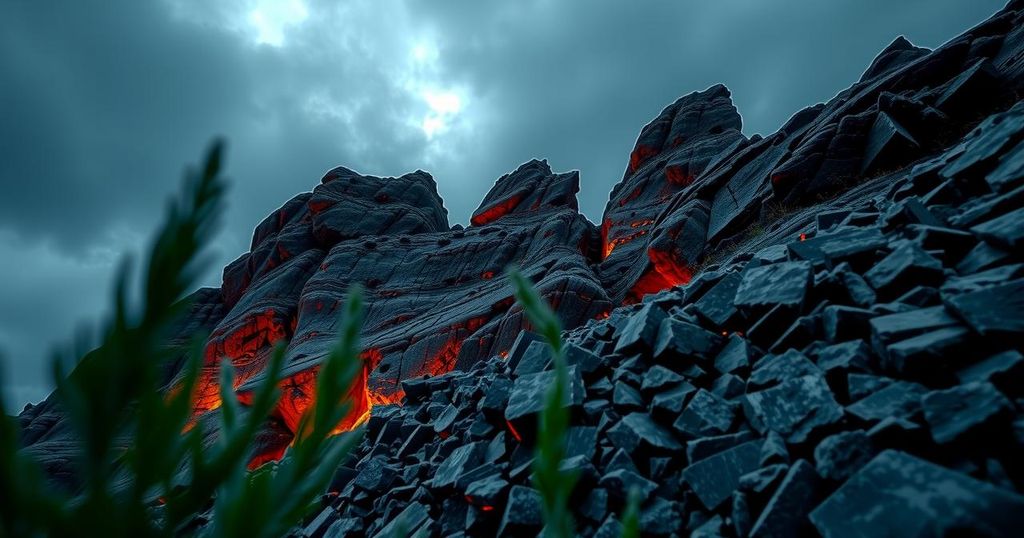BlackRock faces allegations from Friends of the Earth US and Indigenous groups for contributing to environmental damage and human rights abuses through agribusiness investments. A complaint at the OECD highlights that their capital supports deforestation and disrupts traditional communities, with BlackRock’s significant influence over global investments drawing scrutiny. The firm refutes the claims, citing client-led investment decisions, whilst evidence indicates an ongoing escalation of deforestation and environmental degradation linked to its practices.
BlackRock, the largest asset management firm globally, has been lodged with a complaint at the Organization for Economic Co-operation and Development (OECD) by Friends of the Earth US and the Articulation of Indigenous Peoples of Brazil. The complaint alleges that the company has exacerbated environmental destruction and human rights violations through their investments in agribusiness, particularly in the context of their contributions to deforestation in the Amazon and across other essential forests. Despite warnings regarding the destabilizing impacts of these investments on the global climate and traditional communities, BlackRock is alleged to have increased its capital flow into companies connected to such harmful practices.
Filed under the OECD Guidelines for Multinational Enterprises, this complaint stands as a form of accountability for corporate behavior in the absence of a binding international framework. BlackRock manages over $11 trillion in assets, surpassing the combined government expenditure of the ten wealthiest nations. Although clients dictate investment choices, the firm is charged with offering investment advisement and facilitating financial allocations. Notably, a significant portion of these assets pertains to retirement funds, prompting concerns that such investments are jeopardizing a sustainable future.
Gaurav Madan, senior forest and land rights campaigner at Friends of the Earth US, expressed hope that the complaint encourages BlackRock to reconsider its investment choices, particularly within agribusiness sectors, which are deemed harmful to both human rights and ecological integrity. BlackRock responded to the allegations, deeming them unfounded and emphasizing its primary obligation to fulfill the investment goals of its clientele, which largely involve index funds selected by the clients themselves.
Friends of the Earth disputes this stance, illustrating that similar arguments have previously been challenged internationally. They have analyzed BlackRock’s investment practices pertaining to twenty agribusiness firms linked to environmental harm, finding that BlackRock has over $5 billion in these companies, a nearly $519 million increase since 2019. These findings highlight concerns from conservation groups and Indigenous communities regarding the financial institution’s role in perpetuating deforestation and infringing on community land rights.
Recent data indicate that global forest destruction has escalated, surpassing levels reported three years prior when countries committed to halting deforestation by the decade’s end. As a result of rampant land clearance and extreme drought conditions, particularly in the Amazon, the urgency for decisive action has grown. BlackRock is not alone in facing scrutiny; other major financial firms have similarly encountered accusations of dilution regarding their environmental commitments, suggesting a broader trend of greenwashing in the finance sector.
The complex and often contentious relationship between large financial institutions and their environmental responsibilities continues to draw critical attention from various advocacy groups, bringing to light the challenges of ensuring corporate accountability in the face of pressing global crises.
The issue at hand revolves around BlackRock’s substantial influence in the financial markets through its management of over $11 trillion in assets. There are increasing concerns regarding the environmental and social impacts of its investments, particularly in sectors linked to agribusiness. Non-profit organizations and advocacy groups argue that BlackRock’s investments facilitate activities that violate the rights of Indigenous peoples and contribute to ecological destruction. The lack of strong international regulatory frameworks makes initiatives such as the OECD Guidelines pivotal for holding multinational corporations accountable. Recent evidence of rising deforestation rates exacerbates these concerns, linking them to broader implications for climate stability and human rights.
The allegations against BlackRock underscore a growing call for greater accountability and responsible investment practices among major financial institutions. As environmental degradation and violations of human rights continue to rise, it is imperative that asset management firms like BlackRock reconsider their investment strategies, particularly in agribusiness sectors associated with deforestation. Advocacy groups emphasize the necessity for sustained pressure on such institutions to realign their investment priorities towards actions that preserve ecological integrity and respect community rights, in order to forge a more sustainable future.
Original Source: www.theguardian.com

Leave a Reply